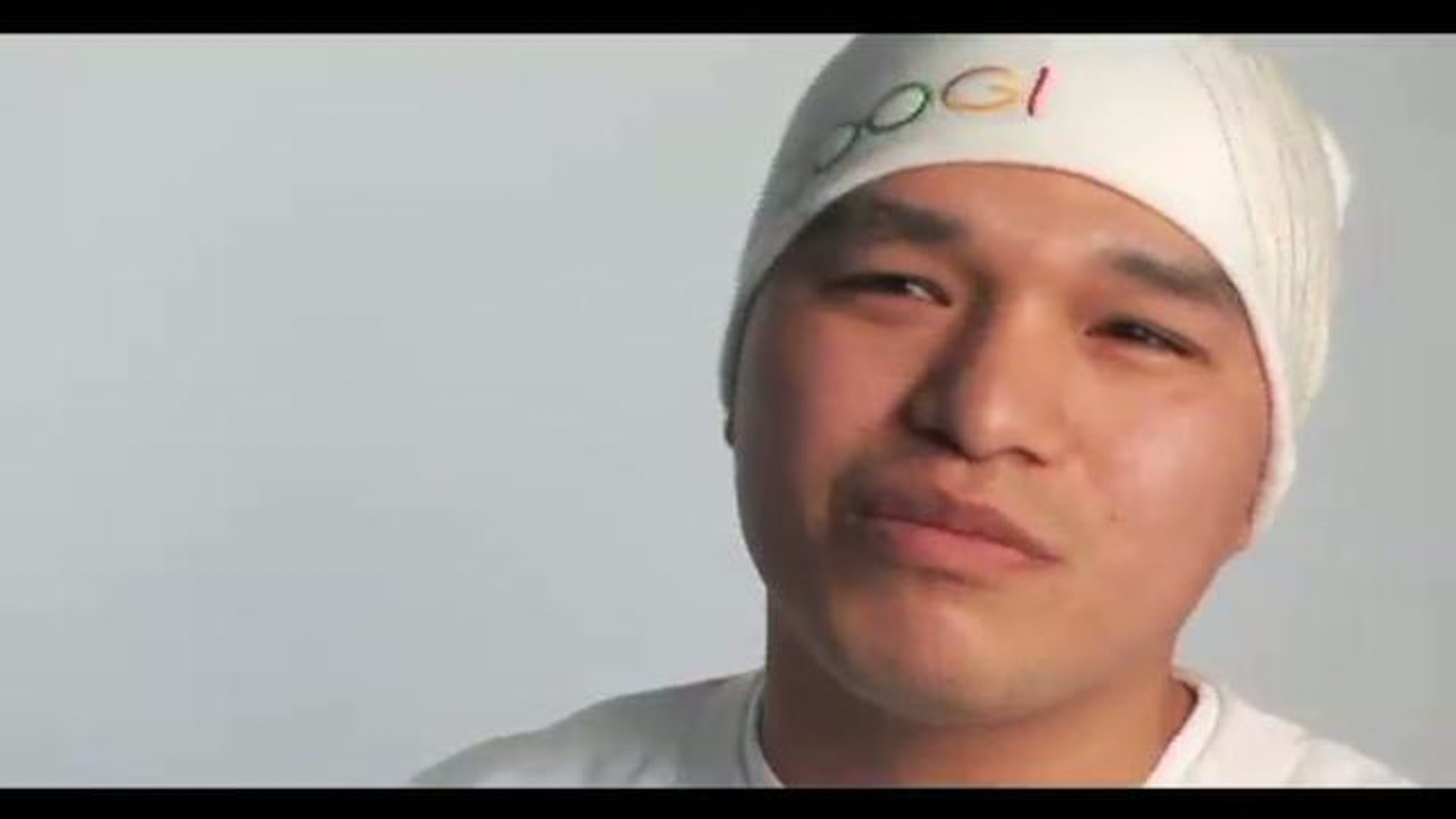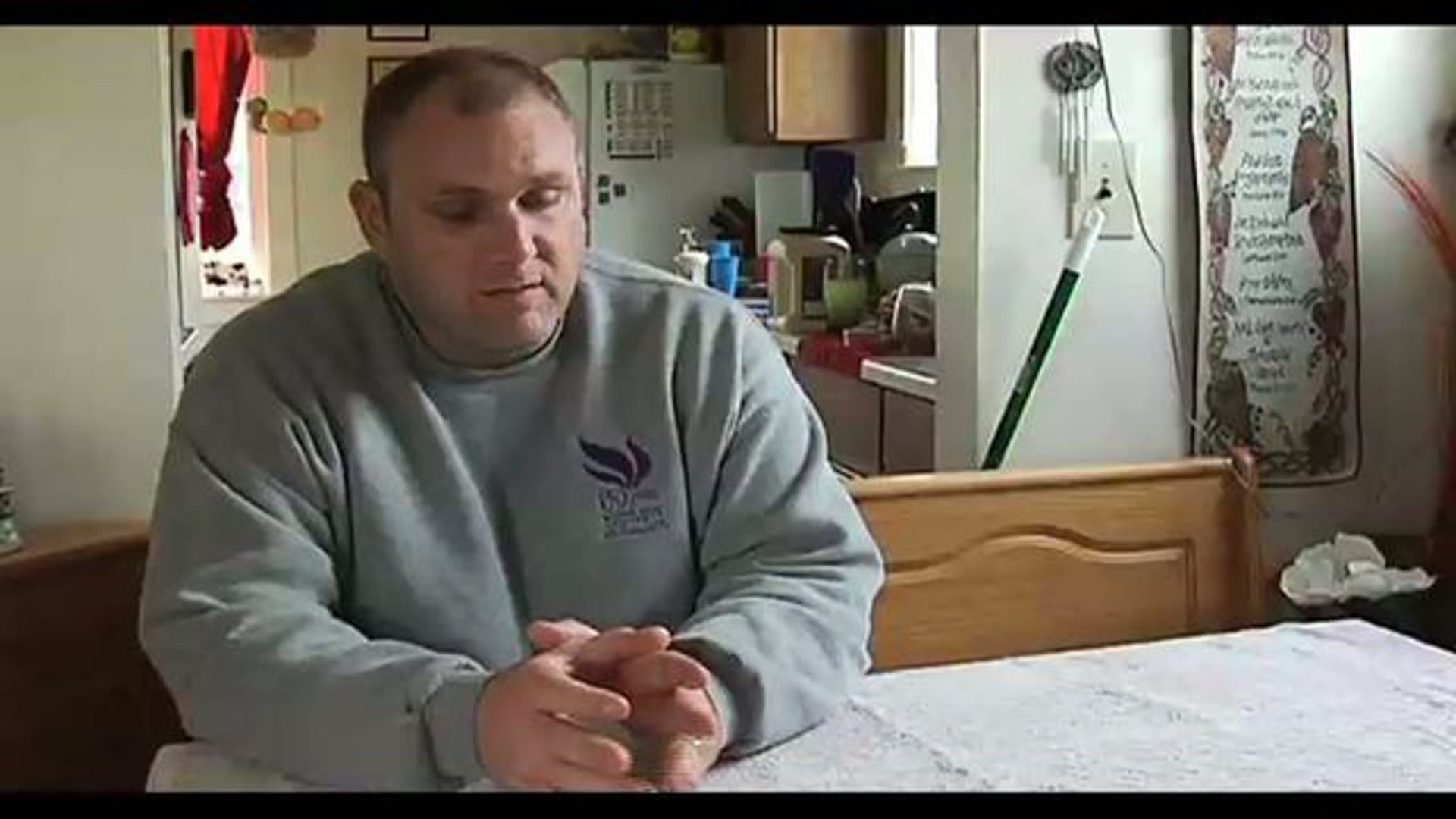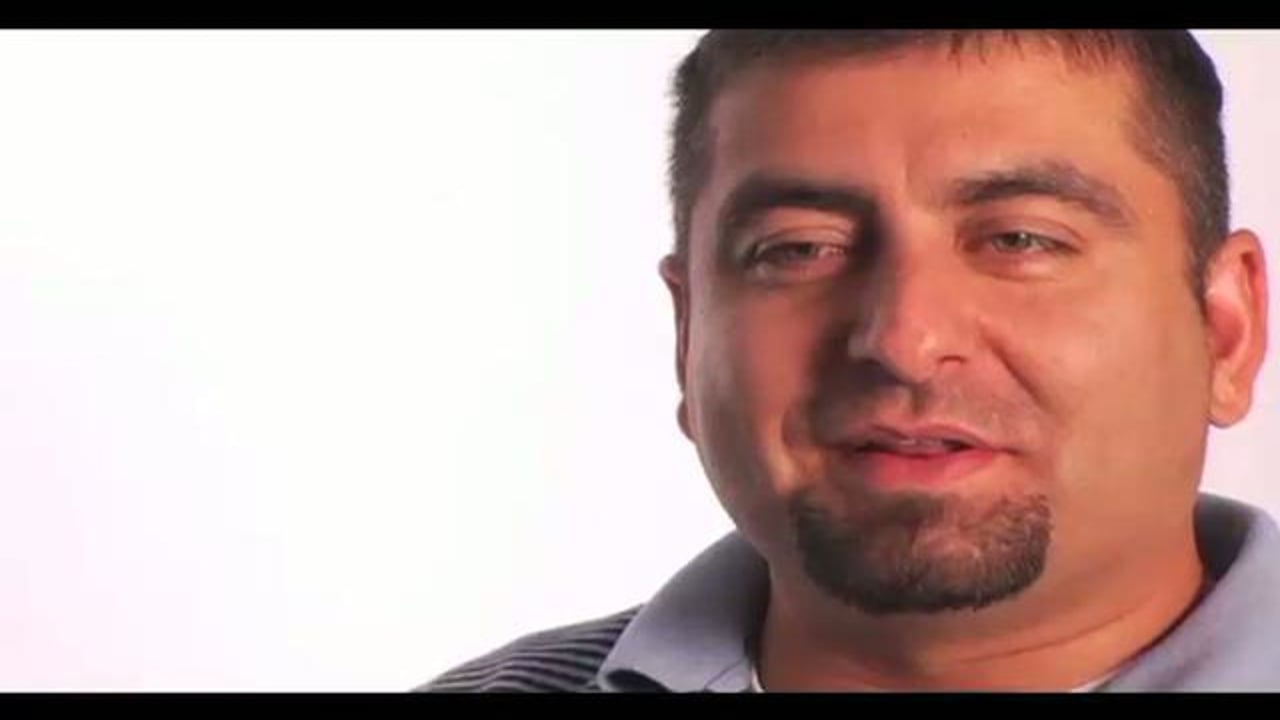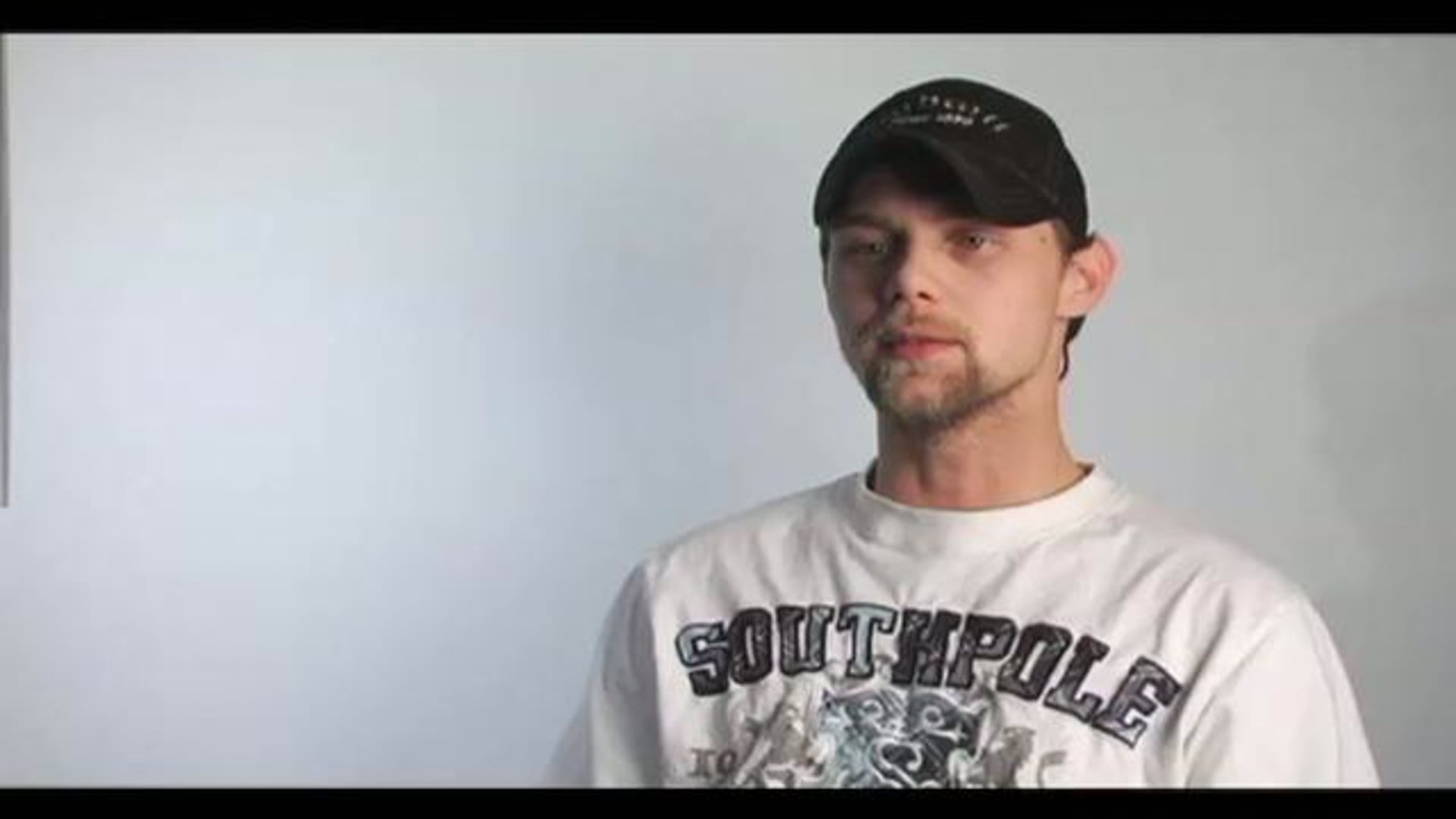Talking to batterers
When we began the “Power and Control” project, we didn’t plan to interview any batterers or to film a men’s group. It seemed that it would expand the scope of the project too much. And some advocates opposed giving media exposure to any batterers.
As we learned more about domestic violence and as the stories we followed got deeper and more complex, we decided to film a men’s group and to speak one-on-one with men who have abused their partners. The advocates we met in Duluth encouraged us on this path.
Showing the men’s group seemed necessary for presenting a full perspective on the Duluth Model, because batterer’s intervention groups based on a cultural/educational approach are key to the Model.
Another reason to show the abusers had to do with story. A good story needs a bad guy, and we found a whole group of them, sitting on folding chairs in a Duluth office.
In his own words: Josh Mosher
“I was not a pleasant person. I had started drinking more and just in general it kind of felt like I didn’t know where I was supposed to be in life. I kind of took it out on everybody else. Because I’m frustrated, stressed about the finances. So that created a lot of tension between us.”
Kim’s story: Josh
Kim and Josh had been married for 10 years before Kim decided to leave and go into a shelter. In retrospect, Kim feels that Josh’s abusive behavior began early in their relationship. When Josh was in the Army, they lived in Germany, and Kim told stories of Josh’s tendency to exert control over her daily life and of incidents related to heavy drinking. In more recent years, Kim was troubled by Josh’s impatience with their children, and most of all by the occasions when he was physically violent toward them.
Partner Profile: Domestic Abuse Intervention Project — Men’s Groups
Inside a nondescript corner building in a rundown stretch of Duluth, the DAIP carries on the work of the Duluth Model. Scott Miller, the men’s group team leader, speakers clearly and enthusiastically about the men’s groups he runs. “When we work with men, it’s based on an understanding that men are using violence based on privilege, that there is a hierarchical way that they have of understanding the world, themselves and the women they are with,” Miller says. “So when men are at the top of a hierarchy the reason that they are there is because they can be.”




